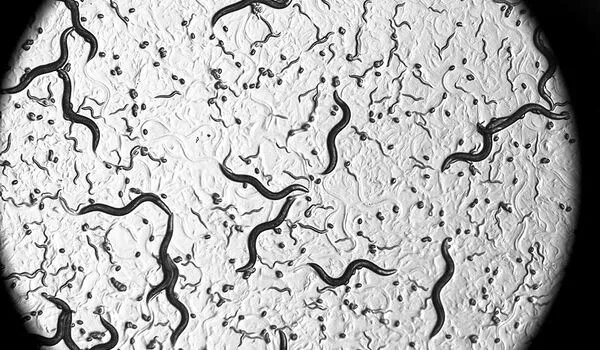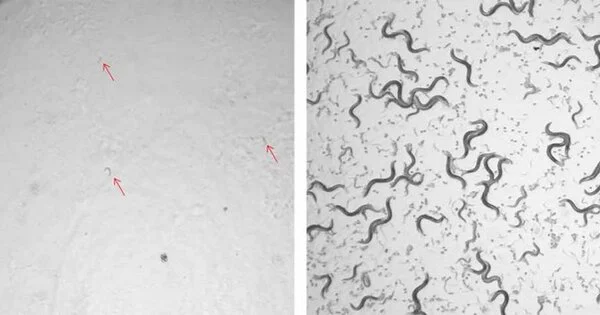There is ongoing research into various approaches to combat aging and cancer development, which are often linked. Some strategies for preventing cancer development include avoiding exposure to carcinogens, maintaining a healthy diet and exercise routine, getting regular cancer screenings, and avoiding excessive alcohol and tobacco use. In terms of combating aging, a healthy lifestyle that includes regular exercise, a balanced diet, adequate sleep, and stress reduction can help maintain physical and cognitive function as people age.
Human genome damage can be repaired. However, this is more effective in germ cells, sperm, and eggs than in normal body cells. The DREAM protein complex is to blame for this, as it prevents the activation of all available repair mechanisms. A team of researchers has now demonstrated that once this complex is deactivated, normal body cells can be repaired more effectively. In the long run, the researchers hope to develop better therapies to prevent cancer and other diseases associated with aging.
A protein complex prevents the repair of genome damage in human cells, mice, and the nematode Caenorhabditis elegans, according to a team of researchers from the University of Cologne. They also used a pharmaceutical agent to successfully inhibit this complex for the first time.
Our findings for the first time allow us to improve DNA repair in body cells and to target the causes of aging and cancer development.
Dr. Björn Schumacher
“When we suppress the so-called DREAM complex in body cells, various repair mechanisms kick in, making these cells extremely resilient to all types of DNA damage,” said Professor Dr. Björn Schumacher of the University of Cologne’s CECAD Cluster of Excellence in Aging Research.
Our DNA must be well protected because it contains all of our genetic information. However, it is constantly subjected to damage caused by environmental factors – or by our normal metabolism. As a result, DNA repair is critical for the stability of our genome and the proper functioning of our cells.
“Our findings for the first time allow us to improve DNA repair in body cells and to target the causes of aging and cancer development,” Schumacher added. Still, more research is needed until these results can be translated into new therapies for human patients. The study ‘The DREAM complex functions as conserved master regulator of somatic DNA repair capacities’ has appeared in Nature Structural & Molecular Biology.

DNA-damage leads to aging and disease
Our genetic material is passed down through generations. This is why it is so well protected in our germ cells. There are highly precise DNA repair mechanisms at work, ensuring that only minor changes in the genetic material are passed on to offspring. Our human genome has been passed down to us for two hundred thousand years thanks to DNA repair. It has always ensured the preservation of genetic information. In our body cells, DNA is constantly repaired, but only for the duration of the individual’s life.
Sometimes, children are born with faulty DNA repair systems, making them age more quickly and develop typical age-related diseases such as neuro-degradation and arteriosclerosis already in childhood. In some cases, they also have an extremely increased risk of cancer. These are all consequences of DNA damage not being properly repaired.
The DREAM complex prevents repairs
Schumacher and his colleagues investigated why body cells lack the same repair mechanisms as germ cells. They discovered that the DREAM protein complex limits the number of DNA repair mechanisms in body cells in experiments with the nematode C. elegans: the complex attaches to the DNA’s construction plans, which contain instructions for the repair mechanisms. As a result, they cannot be mass-produced in large quantities. Germ cells, on the other hand, lack the DREAM complex. As a result, they naturally produce a large number of DNA repair mechanisms.
Mammals also have a DREAM-complex
Further laboratory experiments with human cells (cell culture) revealed that the DREAM complex functions similarly in human cells. They were also able to use a pharmaceutical agent to disable the DREAM complex. “We were ecstatic to see the same effect in C. elegans. The human cells were much more resistant to DNA damage after treatment,” said Arturo Bujarrabal, a postdoc in Schumacher’s lab and the study’s lead author. In mice, treatment with the DREAM complex inhibitor had the same amazing effects: the DNA in the retina of the mice could be repaired while the function of the eye was preserved. The test was carried out in mice that, like some patients, age prematurely and show a typical degeneration of the eye’s retina.
DNA-damage in space
Because of the extremely high radiation levels in space, genome damage also plays a significant role in manned spaceflight. It’s difficult to imagine a longer stay in space without improved DNA repair. According to Schumacher, “therapies that target and improve this newly discovered master regulator of DNA repair could reduce the risk of cancer because genes remain intact.” Furthermore, because cells can only function with an intact genome, the risk of age-related diseases would be reduced.





